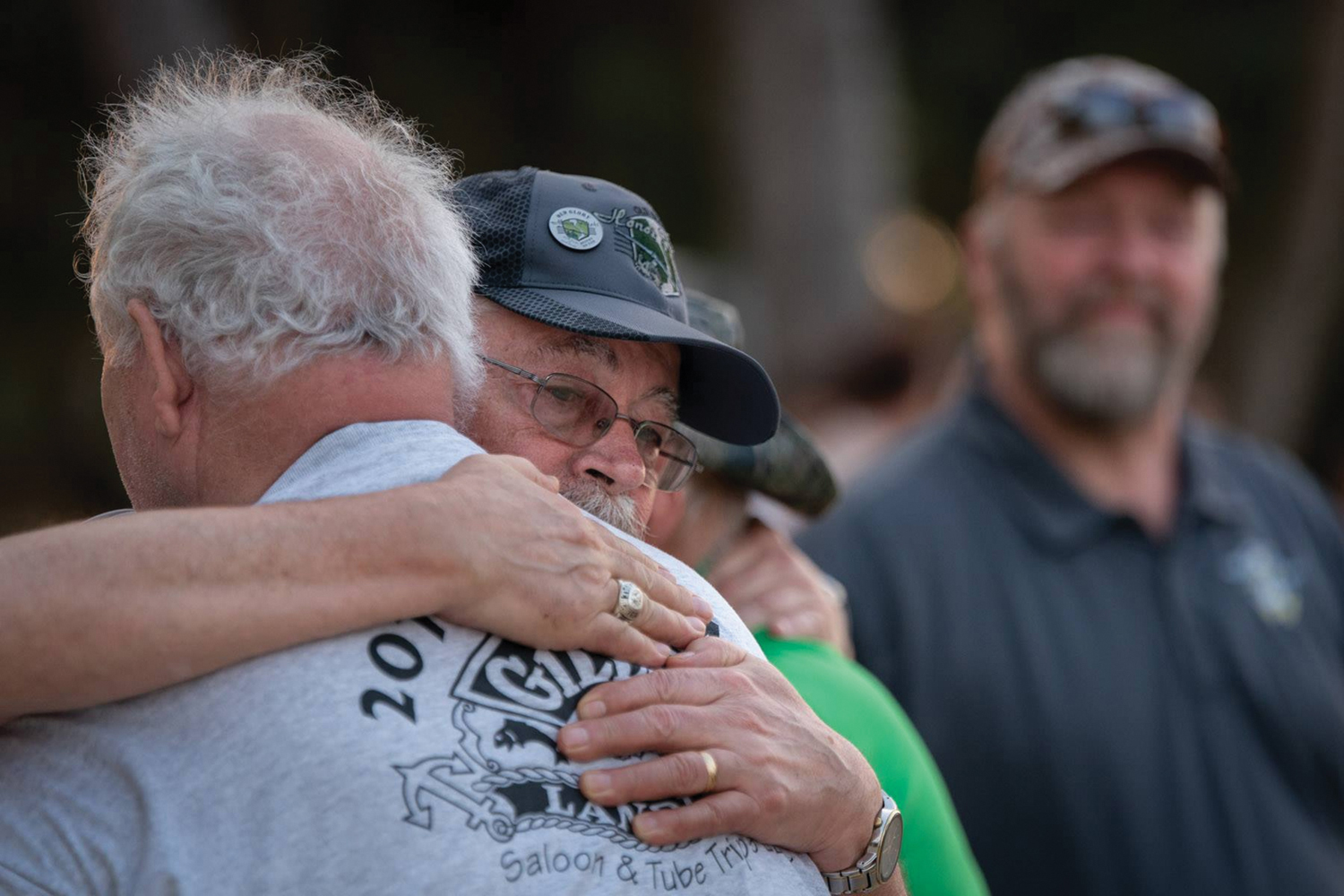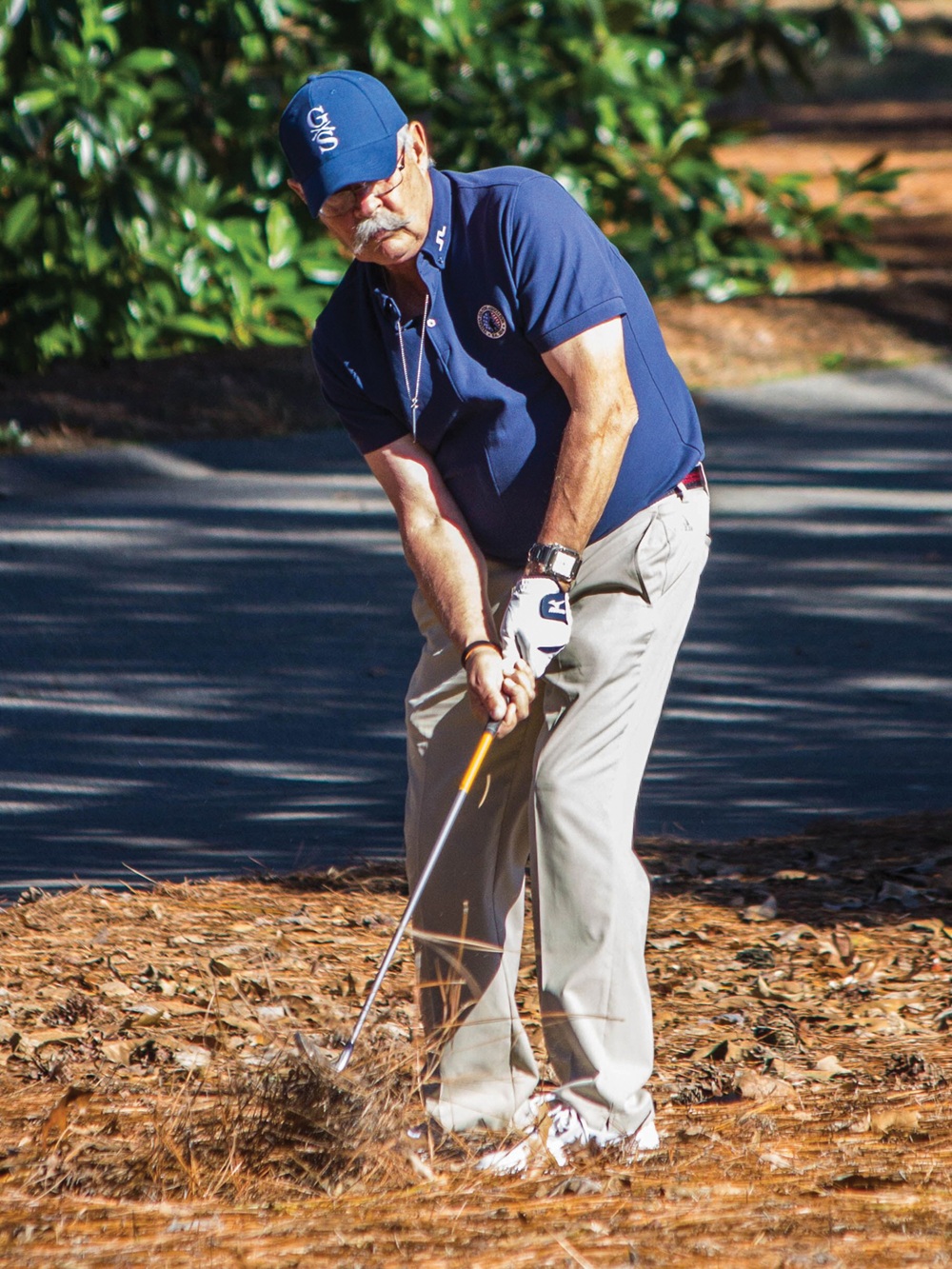U.S. military Veteran George Dexter finds peace in an unlikely place
A Return To Vietnam
On February 24th, 2019, a group of graying Vietnam War veterans boarded a plane to return to Vietnam—a place many of them swore they’d never go back to. Their smooth faces and freshly pressed fatigues have been replaced by weathered expressions, creased t-shirts, and ball caps. This tour, nearly 50 years later, isn’t about duty, weapons, and war; it’s about offering 53 Northeast Wisconsin veterans a chance at reconciliation, healing, and peace. Conducted by Old Glory Honor Flight—an all-volunteer northeast Wisconsin organization dedicated to serving war veterans—this once-in-a-lifetime trip takes veterans to locations they occupied during the Vietnam War. From the sweltering swamplands of the Mekong Delta in South Vietnam to the remains of North Vietnam’s Hoa Lo Prison, dubbed the “Hanoi Hilton” by American prisoners of war, the trip offered the veterans a chance to heal old wounds and build new relationships with the land and people of Vietnam.
Courage & Survival
One of the veterans on board was George Dexter, who served in the Army’s 9th Infantry Division during the war. George enlisted at the start of his lifelong career as a mail carrier, just after his best friend was killed in combat in Vietnam. During the War, George’s primary duty was delivering mail to the troops. “I was still a mailman, just a heavily armed one,” George chuckles before drawing in a deep breath. “I did whatever it took to get our guys their mail.”
Two or three times a week, George brought mail—whether by jeep, truck, or helicopter—to troops wherever they were, even on the war’s most dangerous battlefronts. “One time, I went to bring mail to our mechanized unit, and they weren’t where they usually were,” recalls George, who himself was injured in combat and awarded a number of honors for his bravery, including the Bronze Star and the Purple Heart. “I came back to base and did some digging around, and I finally located them in Cambodia, so I requisitioned a C130 transport plane to fly me to the Cambodian border. From there, I unloaded the mail into a truck, and went with a six-vehicle convoy to where our guys were. They started their mission with 18 vehicles, and when I found them, they were down to one.” He pauses. “When I finally caught up with them, they were a mess. But I found what was left of them and got them their mail.”
George’s service in Vietnam—and that of many of his fellow soldiers—centered on a single philosophy. “Survival,” says George. “Any given day could be our last.” Such grave circumstances demand bonds between soldiers that can never be broken. “In a lot of cases, we didn’t have to say any words to know what the others were thinking,” he says.
The Trip Of A Lifetime
The Old Glory Honor Flight to Vietnam gave veterans the opportunity to revisit some of those bonds, as well as forge new ones. Exploring significant military sites together—places where many of them spent time in battle—brought intense, cathartic emotions quickly met by brotherly understanding and support. “They told us when we started the trip that things were bound to get emotional for each and every one of us,” says George. “We were there for each other through all of those moments. We had each other’s backs.”
George was especially inspired by how well-received he and his fellow veterans were by the local people. “We were treated with such kindness and respect,” he says. “We even met a former enemy who was a fighter pilot for North Vietnam. We all shook hands and gave hugs. He was someone’s father, son, and brother just like we were. It felt really, really good to do that after 50 years.”
A Well-Deserved Return
The week-long trip was packed with laughter and tears to be sure, but perhaps the most powerful experience was the return home, especially when compared to the return from Vietnam nearly 50 years ago.
Amid a particularly treacherous political climate, many American soldiers returning stateside after surviving unspeakable horrors were greeted with scorn. Spitting, vulgar gestures, and even violence toward returning soldiers was commonplace, adding yet another layer of trauma to the soldiers’ already life-altering experiences. And because of the war’s longevity and resulting deployment logistics (a soldier completed a year-long tour of duty and was then replaced by another), soldiers often returned home alone rather than with their unit.
50 years later, the veterans on the Old Glory Honor flight finally received the welcome home they deserve. After a long flight and bus ride back to Menasha, Wisconsin, the group was greeted by a law enforcement escort. “When I saw the flashing lights and heard the sirens, that’s when the tears started for me,” says George. At their destination—Menasha High School—the veterans were met by their spouses and families, tenacious embraces, and tears of joy and healing.
The heartfelt homecoming only intensified as the veterans entered the school’s gymnasium, which erupted into raucous cheering from over 3,000 supporters. It was a moment that could bring even the hardest soldier to tears. “I cried like a baby,” says George.
Finding Peace
George’s return to Vietnam brought him peace, healing, and camaraderie—things that are crucial to veterans as they adjust to civilian life. In life after war, George has found another source of solace: golf.
When he started golfing at 60, it was love at first swing. “I fell in love with the game the first time I held a club in my hands,” says George, who is today an active member of the Veteran Golfers Association, a nonprofit committed to enriching the lives of U.S. military veterans and their family members through the sportsmanship and camaraderie of golf. “You’re out in God’s creation, and you’ve got nature and wildlife at its best, and it’s you and a little white ball,” says George through a smile. “It’s hard to beat that.”
The Veterans Golfers Association has taken George’s love for the sport to the next level. When George heard his home course Thornberry Creek at Oneida (the official course of the Green Bay Packers and the home of the Thornberry Creek LPGA Classic) was holding one of eight qualifying tournament events for the VGA Championship, he joined the association immediately. Along with participating in the VGA qualifying event held at Thornberry, he also earned a spot as one of 83 golfers to qualify for the VGA Championship held in Pinehurst, North Carolina. George was tickled to have the opportunity to play Pinehurst No. 2, No. 4, and No. 5 with fellow veterans—an experience he ranks as one of his most memorable.
George’s successful golf career with the VGA has continued; he’s qualified for regional and championship events several times. But his on-course successes are secondary to the relationships he’s built in the VGA because for George, the real, heart-healing reconciliation happens when he builds unbreakable bonds with other vets who have given so much to our country—whether on the course or through experiences that meet life-altering turmoil with peace. “I love meeting people from all over the country who have put on a uniform and served this great nation,” says George. “Being out on the course with fellow vets—it doesn’t get better than that.”
This article first appeared in the spring 2019 edition of GolfStatus magazine. Learn more about the Veteran Golfers Association at



